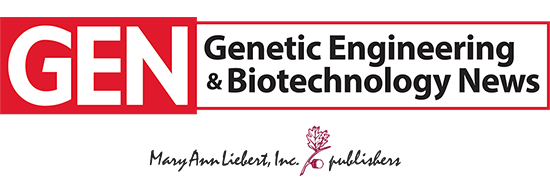by Alex Philippidis
Bristol Myers Squibb (BMS) has agreed to acquire Mirati Therapeutics for up to $5.8 billion, the companies said, in a deal that expands the buyer’s cancer portfolio with Mirati’s marketed drug Krazati® (adagrasib) and several pipeline candidates that have shown positive albeit early clinical data.
Krazati is an inhibitor of the RAS GTPase family that became Mirati’s first drug to generate sales after winning FDA accelerated approval last December. Krazati is indicated as a treatment for adults with KRASG12C-mutated locally advanced or metastatic non-small cell lung cancer (NSCLC), as determined by an FDA-approved test—and who have received at least one prior systemic therapy. KRASG12C mutations account for approximately 14% of all NSCLC patients, representing one of the most frequent alterations in NSCLC.
In gaining authorization from the agency, Krazati became the first drug to challenge Amgen’s KRAS inhibitor Lumakras® (sotorasib), which carries an identical indication and was approved by the FDA in 2021 as the first KRAS-targeted therapy authorized by the agency. Mirati said Krazati’s long half-life and ability to be combined with a PD-1 inhibitor in first-line treatment of NSCLC position the drug for greater future success.
During the first half of this year, Lumakras generated $151 million, more than half of which consisted of the $77 million collected in the second quarter.
Krazati, by contrast, generated $19.656 million in net product revenue, of which more than two-thirds (68% or $13.365 million) came in the second quarter. The Q2 number included about $11.7 million of commercial sales and $1.7 million of sales to a third-party commercial customer for its clinical trials, Mirati said in August.
“Uptake in 2L+ [second and subsequent line] NSCLC has been slow for both MRTX and AMGN,” Jefferies analyst Maury Raycroft, PhD, and colleagues observed in a research note. “However, we believe MRTX’s drug could be best-in-class w/ better CNS penetration and combinability w/ IO agents, which could support 1L [first line] use w/ access to a much larger mkt oppty [market opportunity].”
Did Amgen setback trigger deal?
Raycroft and colleagues questioned whether BMS moved to buy Mirati because of a setback to Amgen’s quest to expand the FDA’s accelerated approval for Lumakras into full approval.
Earlier this month, the FDA’s Oncologic Drugs Advisory Committee recommended against the expansion 10–2 by concluding that it could not reliably interpret Amgen’s progression-free survival data from the Phase III CodeBreaK 200 confirmatory study (NCT04303780) comparing Lumakras with docetaxel in NSCLC patients with a KRAS p. G12c mutation. The panel cited factors ranging from potential bias from investigators to the trial patient population, and a high number of patients dropping out of the study.
The FDA’s PDUFA target decision date on full approval is December 24.
BMS agreed to $58 a share for Mirati—approximately $4.8 billion—representing a 52% premium to the 30-day volume-weighted average price as of Wednesday, before speculation arose about a Mirati buyout, plus an additional contingent value right (CVR) of $1 per share upon FDA acceptance of a new drug application for MRTX1719 to treat either locally advanced or metastatic NSCLC in patients who have received up to two prior lines of systemic therapy within seven years after the closing of the acquisition deal.
While the $58-per-share price is 4% below Mirati’s Friday closing price of $60.20, it is fair because oncology drug companies have sold for about 3.5 to 4 times peak sales, Raycroft and colleagues added.
Jefferies forecasts peak year worldwide sales in 2032 of $1.4 billion for Krazati just on its current indication—with peak year sales growing by an additional $420 million should it add an indication for KRASG12C-mutated colorectal cancer (CRC), where Mirati is expected to file a supplemental NDA for third-line and beyond CRC treatment by year’s end.
Buyout speculation
Speculation about a buyout of Mirati emerged in August, after CEO David Meek stepped down as CEO and a board member after just two years in the position. He and Mirati “mutually agreed” on Meek’s departure, the company announced at the time.
Meek succeeded founder Charles M. Baum, MD, PhD, who became Mirati’s president. When Meek left, Mirati returned Baum to the helm as interim CEO, but retained Meek as a consultant through October 15.
Krazti’s revenues could grow if BMS can fulfill Mirati’s quest of adding indications for the drug—both as a monotherapy and in combination with PD-1 inhibitors. Mirati said has begun working with regulators to expand the use of adagrasib based on it having shown central nervous system (CNS) penetration and intracranial responses in patients with active and untreated brain metastases.
The drug has also demonstrated efficacy as a second- and third-line treatment for colorectal cancer in combination with Eli Lilly’s Erbitux® (cetuximab), and as a monotherapy in previously treated pancreatic ductal adenocarcinoma.
Also in Mirati’s pipeline:
- MRTX1719, a Phase I MTA-cooperative PRMT5 inhibitor that has shown positive early efficacy data across several tumor types with MTAP deletion, including NSCLC, bile duct cancer, and melanoma. MRTX1719 is designed to target MTAP-deleted tumors that comprise approximately 10% of all cancers. MRTX1719 is expected to enter Phase II clinical study in the first half of 2024.
- MRTX0902, a Phase I SOS1 inhibitor that has shown the potential for combination use with other agents targeting the MAPK/RAS pathway, including Krazati.
- MRTX1133, which targets the KRASG12D mutation implicated in pancreatic cancer, NSCLC—and colorectal cancer, in which the KRASG12D mutation is implicated in over 30% of patients.
“With a strong strategic fit, great science, and clear value creation opportunities for our shareholders, the Mirati transaction is aligned with our business development goals,” BMS CEO and Board Chair Giovanni Caforio said in a statement. “By leveraging our skills and capabilities, including our global commercial infrastructure, we will ensure patients globally can benefit from Mirati’s portfolio of innovative medicines.”
BMS acknowledged the deal would reduce its non-GAAP earnings per share by approximately 35 cents per share in the first 12 months after the transaction closes.
BMS said it expects to use a combination of cash and debt to finance its buyout of Mirati, which has been unanimously approved by the boards of both companies. The deal is expected to close by the first half of 2024, subject to fulfillment of customary closing conditions, including approval by Mirati stockholders and regulatory approvals.
Alex Philippidis is senior business editor of GEN.


